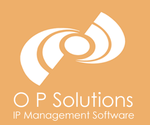What Is Intellectual Property Management Software?
Intellectual Property Management Software (IPMS) is a sophisticated tool for protecting, managing, and monetizing intellectual property assets. This software offers a consolidated platform for storing, tracking, and analyzing various types of intellectual property, including patents, trademarks, copyrights, and trade secrets. One of IPMS's primary strengths is its ability to streamline the patent and trademark application and approval process.
This program simplifies and expedites the registration and renewal process by providing powerful search capabilities and configurable workflows, saving users both time and money. In addition to handling the legal issues of intellectual property, IPMS assists users in protecting their assets through monitoring and enforcement. This software can automatically detect and trace any potential infringement or misuse of intellectual property, allowing users to act quickly to safeguard their rights.
Furthermore, IPMS offers useful insights and statistics about the functioning of intellectual property assets. This includes data on revenue, market trends, and competition, allowing customers to make data-driven decisions to maximise the value of their intellectual property. IPMS also includes collaboration and document management functions, making it easier for teams to collaborate on the creation and maintenance of intellectual property.
This is especially beneficial for large firms with several stakeholders involved in the intellectual property process. When considering acquiring IPMS, it is critical to select software that is user-friendly and customizable to meet your individual requirements. Also, ensure that the software interfaces seamlessly with your existing systems and provides dependable customer support.
Overall, Intellectual Property Management Software is an essential tool for any individual or corporation trying to properly manage and protect their intellectual property assets. By optimizing procedures, delivering important insights, and allowing collaboration, this software can assist users in increasing the value of their intellectual property and staying ahead in today's competitive market.
What Are The Recent Trends In Intellectual Property Management Software?
The topic of intellectual property (IP) management has recently seen significant expansion as a result of new technology and shifting market dynamics. As a result, the demand for efficient and comprehensive IP management software has risen dramatically.
In this buyer's guide, we will go over the most recent trends in the field of IP management software to help you make an informed decision.
1. Cloud-Based Solutions: The adoption of cloud-based IP management software is on the rise. These solutions have various advantages, including scalability, accessibility, and cost-effectiveness. With remote work becoming the norm, cloud-based software enables seamless collaboration among team members as well as the management of IP assets from anywhere in the world.
2. Integration With Other Systems: As businesses rely on several software solutions for various activities, integration between them has become increasingly important. Intellectual property management software is no exception. The latest trend is for seamless interaction with other systems such as document management, patent databases, and accounting software to create a more streamlined and effective workflow.
3. Advanced Analytics: With so much data in the realm of intellectual property management, there is an increasing demand for software with advanced analytics capabilities. These technologies enable firms to acquire useful insights into their intellectual property assets, monitor their performance, and make data-driven decisions to boost their IP strategy.
4. Artificial Intelligence (AI) And Machine Learning (ML): The incorporation of AI and ML into IP management software has transformed how businesses manage their IP assets. These technologies allow for automated data extraction, classification, and analysis, reducing manual burden and lowering the danger of human error.
5. Greater Emphasis On Security: Intellectual property is a valuable asset, and securing it has become a major priority for corporations. As a result, IP management software now includes strong security features such as data encryption, access control, and user authentication to safeguard sensitive information from cyber attacks.
6. User-Friendly Interfaces: As the customer base for IP management software grows to include non-technical users, there is a greater need for software with user-friendly interfaces. Vendors are investing in providing intuitive interfaces with drag-and-drop functionality, customisable dashboards, and simple navigation to meet their clients' different needs.
Benefits Of Using Intellectual Property Management Software
Intellectual Property Management Software (IPMS) is a specialised software solution that enables enterprises and individuals to properly manage and protect their intellectual property (IP) assets. From patents and trademarks to copyrights and trade secrets, IPMS provides a comprehensive set of tools for streamlining and simplifying the often difficult process of maintaining and protecting intellectual property.
One of the key advantages of using IPMS is increased efficiency and production. With an easy-to-use, consolidated platform, users can manage all aspects of their intellectual property in one location, saving time and resources that would otherwise be spent on manual processes and paperwork. Furthermore, IPMS assists organizations in staying on top of their IP portfolio by offering real-time monitoring and tracking of key deadlines such as renewal dates and maintenance payments.
This not only guarantees that crucial deadlines are met, but it also allows organizations to make more informed decisions regarding their intellectual property strategy and portfolio management. Another key advantage of IPMS is the ability to keep detailed records of all intellectual property assets. This includes information about ownership, license agreements, and infringement proceedings.
Businesses can use this unified database to easily access and show evidence of their intellectual property rights if necessary. IPMS also includes extensive security mechanisms to safeguard sensitive information, ensuring that only authorized workers have access to essential data. This is critical for businesses that deal with sensitive and valuable information since it helps to avoid data breaches and unlawful usage of intellectual property.
IPMS can also help simplify and expedite the patent and trademark filing process. This can save organizations time and money while also reducing errors that could lead to costly rejections or delays. In today's global economy, where IP infringement is frequent, IPMS can help organizations defend and enforce their intellectual property rights more efficiently, giving them a competitive advantage. With its comprehensive functionality and efficient processes, IPMS is a useful tool for any company wishing to manage and protect its valuable intellectual property assets.
Important Factors To Consider While Purchasing Intellectual Property Management Software?
When it comes to intellectual property management, having the correct tools may make a huge impact. With the growing need for businesses to secure their ideas and creations, investing in reputable Intellectual Property Management Software is critical. However, with so many options on the market, it might be difficult to pick the correct one.
To help you make an informed decision, here are some key considerations to consider when selecting intellectual property management software.
1. Compatibility: The first thing to check is if the program is compatible with your current systems and processes. It should interact seamlessly with your existing tools and applications to guarantee a smooth workflow.
2. Security: Intellectual property is extremely precious and sensitive information. To protect your information from cyber dangers, look for software that includes advanced security features such as data encryption and user access controls.
3. Features And Functionality: Create a list of the features and functionalities you require in IP management software. Document management, patent and trademark monitoring, search capabilities, and customized workflows are some of the most important elements to consider.
4. User-Friendliness: The program should be simple to navigate and operate, especially for non-tech people. To reduce the learning curve, look for an easy-to-use interface and a comprehensive user guide or training resources.
5. Customization Options: Each organization has distinct requirements, and your software should be able to meet those requirements. Look for software that allows for customization, such as adding additional fields and creating custom reports.
6. Assistance: Technical issues might emerge at any time, therefore the software provider's customer assistance must be reliable. Make sure the program includes a dedicated support team that can be quickly contacted if there are any issues.
7. Scalability: As your firm expands, so will your intellectual property portfolio. It is critical to invest in software that can meet your future requirements and expand with your company.
8. Cost: While cost should not be the only consideration, it is critical to analyze the value you will receive for your investment. Consider the software's features, functionality, and support to determine which one provides the most value within your budget.
9. Reputation And Review: Conduct research and read reviews from other firms that have utilized the software. Look for a trusted company with positive client feedback and ratings. By taking these criteria into account, you can make an informed decision about which Intellectual Property Management Software is most suited to your business needs.
What Are The Key Features To Look For In Intellectual Property Management Software?
When shopping for intellectual property management software, there are a few essential elements to look for to guarantee that you are obtaining a complete and effective solution for your needs.
These features include the following:
1. Data Management And Organization: Intellectual property management entails working with a vast amount of sensitive information, such as patents, trademarks, and copyrights. Look for software that makes it easy and secure to store, organize, and retrieve this data. It should also be able to interact with other systems, such as accounting or project management software, to improve efficiency.
2. Automated Docketing: Docketing is the practice of keeping track of critical deadlines and dates while managing intellectual property. Look for software that includes automated docketing to guarantee that all essential dates are appropriately recorded and managed, lowering the likelihood of missing important deadlines.
3. Cooperation And Communication Tools: Your intellectual property management software should facilitate cooperation and communication among team members, both internal and external. This might include tools like real-time document sharing, chat, and task assignments, which keep everyone on the same page and working efficiently.
4. Reporting And Analytics: To properly manage your intellectual property, you must have a thorough grasp of its current state and performance. Look for software that provides extensive information and analytics on patent and trademark filings, renewals, and expenses, allowing you to make informed decisions and analyze your investment's return.
5. Security And Compliance: Intellectual property is valuable and frequently confidential, therefore it is critical to select software that prioritizes security and compliance. Look for data encryption, access controls, and regulatory compliance, such as GDPR and HIPAA.
6. Customizability And Scalability: When it comes to intellectual property management, each firm has distinct requirements. Look for software that may be customized and suited to your specific needs. It should also be scalable as your organization's needs alter.
7. Training And Support: Implementing new software can be difficult, so ensure that the provider provides extensive training and support to help with onboarding and continued use. This could contain things like user guides, video lessons, and customer assistance. By taking these major aspects into account, you can make an informed decision about which intellectual property management software will best fulfill your requirements. Evaluate various possibilities carefully and select a solution that will effectively streamline your intellectual property management operations while also assisting you in protecting and maximizing the value of your intellectual property assets.
Why Do Businesses Need Intellectual Property Management Software?
Intellectual Property Management Software is a valuable tool for companies looking to protect and maximize the value of their intellectual property assets. With the ever-changing world of digital information and easy internet access, more and more firms are finding it challenging to secure their intellectual property rights.
This is where intellectual property management software steps in, offering a comprehensive solution for streamlining and controlling all aspects of intellectual property. First and foremost, intellectual property management software helps firms manage and track their intellectual property assets. This program offers a centralized platform for storing and organizing all key intellectual property information, including as patents, trademarks, copyrights, and trade secrets.
This not only saves time, but also reduces the likelihood of errors or data loss. Furthermore, intellectual property management software includes robust security features that protect critical information from unwanted access. This is particularly true in today's digital age, when data breaches are a major issue for businesses of all sizes. With features like user authentication and encryption, this software ensures that your intellectual property is always safe and secure.
This tool not only manages and protects intellectual property, but it also streamlines the filing and maintenance of patents, trademarks, and copyrights. It automates tasks including submitting deadlines, negotiating with patent offices, and paying maintenance fees, reducing the possibility of missed deadlines or noncompliance. Another significant advantage of intellectual property management software is the ability to boost team collaboration and communication.
Whether you have a large team spread across various locations or a small group focusing on a specific project, this software allows for seamless and efficient collaboration, eliminating delays and enhancing teamwork. Finally, intellectual property management software provides valuable insights and data, allowing businesses to make informed decisions about their intellectual property portfolio. It creates reports and analyzes data to identify potential threats, underutilized assets, and opportunities for licensing or monetization.
How Much Time Is Required To Implement Intellectual Property Management Software?
The time necessary to adopt Intellectual Property Management Software varies depending on a number of factors, including your organization's size and complexity, the software's unique features and functionalities, and the level of customisation needed. On average, the implementation procedure can last from a few weeks to several months. This comprises the initial setup, data migration, training, and software testing.
It is vital to note that investing time in the deployment process can have a significant impact on the software's long-term adoption and utilization. As a result, it is critical to set aside enough time and resources for a comprehensive implementation procedure. Before beginning the implementation process, you must have a thorough grasp of your organization's needs and objectives.
This will assist in selecting the appropriate software and personalizing the implementation procedure to your individual needs. The first setup and data transfer step will include uploading all essential data and documents into the platform, including patents, trademarks, copyrights, and contracts. This procedure can be time-consuming, especially for larger firms with a lot of intellectual property.
Training is an important part of the installation process since it ensures that your team members are comfortable and proficient in utilizing the program. The period of training will be determined by the software's complexity and the level of customization required by your firm. Finally, the testing step allows you to uncover any potential faults or gaps in the product and make any changes before actually deploying it. This phase is critical in ensuring a seamless and effective transfer to the new software.
What Is The Level Of Customization Available In Intellectual Property Management Software?
Intellectual Property Management Software (IPMS) is a useful tool for enterprises and organizations who want to effectively manage their intellectual property assets. The level of customization provided is an important consideration when comparing various IPMS systems. This refers to the extent to which software may be modified and tailored to a company's specific demands and procedures.
When it comes to personalization, not all IPMS are the same. Some may allow for basic customizing, while others may provide more advanced and extensive possibilities. Buyers must understand the level of customization offered before making an informed selection and investing in a solution that best matches their needs. At the most basic level, IPMS can be tailored to a company's branding and visual aesthetics.
This includes the option to add logos, modify colors and fonts, and personalize the software's layout to reflect a company's branding guidelines. This amount of customisation may be adequate for certain firms, particularly those with tiny intellectual property portfolios. Many IPMS allow for advanced customisation of fields and categories inside the software.
Users can build their own custom fields and tags to help categorize and organize their intellectual property. This form of customization is especially useful for businesses with unique or complicated intellectual property portfolios that require customized fields to track and manage their assets efficiently. Another important component of customisation is the ability to set up workflows and processes within the software.
This allows enterprises to adjust the software to their own IP management processes, resulting in a seamless integration into their existing workflow. Customizable workflows can also help to increase overall efficiency and streamline tasks, saving time and resources. Additionally, some IPMS allow users to create and adapt numerous reports and dashboards to meet their specific needs. This enables firms to create reports that provide useful insights into their intellectual property, allowing them to make more informed decisions and identify areas for development.
Which Industries Can Benefit The Most From Intellectual Property Management Software?
Intellectual property (IP) is a valuable asset for any firm, no matter its size or industry. Long-term profitability and expansion require effective intellectual property protection and management. In today's fast-paced and highly competitive market, efficient intellectual property management is more important than ever. This is where Intellectual Property Management Software enters the picture. IP Management Software is a digital tool that assists firms in streamlining their intellectual property activities, including tracking, monitoring, and safeguarding patents, trademarks, copyrights, and other valuable intangible assets. It provides a consolidated platform for managing all aspects of intellectual property, including development, registration, enforcement, and upkeep. While IP Management Software can benefit any industry, some will benefit more dramatically than others.
We'll look at which sectors can benefit the most from deploying an IP Management Software solution.
1. Technology And Software Companies: Technology and software companies frequently deal with complex intellectual property assets including software codes, algorithms, and patents. IP Management Software can assist these firms in efficiently managing their IP portfolios, monitoring rival actions, and lowering the risk of infringement claims.
2. Pharmaceutical And Biotech Companies: In the pharmaceutical and biotech industries, innovation and patents are critical for staying ahead of the competition. IP Management Software can assist these businesses in effectively tracking their patents, managing their licensing arrangements, and ensuring regulatory compliance.
3. Manufacturing Industry: Trademarks and designs are valuable assets for manufacturing businesses. These firms can easily secure and manage their brand names, designs, and logos using IP Management Software, guaranteeing that they are not infringed.
4. Creative And Media Industry: Intellectual property forms the foundation of the creative and media industries. IP Management Software can help content creators, artists, photographers, and musicians secure their unique work, manage licensing agreements, and track copyright ownership.
5. Healthcare Industry: Medical device, medicine, and therapy patents are extremely important in the healthcare industry. IP Management Software can help these organizations manage their patent portfolio, stay on track with deadlines, and prevent costly legal challenges. In addition to these companies, universities, research institutions, and law firms can all benefit greatly from IP Management Software. Finally, any company that values and relies on its intellectual property can gain a competitive advantage by installing an IP Management Software system.
Conclusion
To conclude our Buyer's Guide to Intellectual Property Management Software, it is clear that investing in such a tool is critical for any organization, regardless of size or industry. The advantages of utilizing IP management software are numerous, including securing valuable assets, streamlining IP operations, and lowering the chance of legal conflicts.
When looking for the best IP management software for your firm, you must examine your specific requirements, budget, and scalability alternatives. Furthermore, ensure that the program includes important functions like document management, automatic reporting, and secure data storage. To fully utilize the software's potential, we also recommend selecting a user-friendly interface and a responsive customer support team.
With the growing importance of intellectual property in today's corporate scene, having a trustworthy and efficient IP management software is no longer a luxury, but rather a requirement. Implementing such a tool allows you to save time and resources, reduce risks, and raise the total value of your company's intellectual property. We hope that this buyer's guide has helped you make an informed decision about your organization's IP management needs. Thank you for reading, and happy shopping!






















